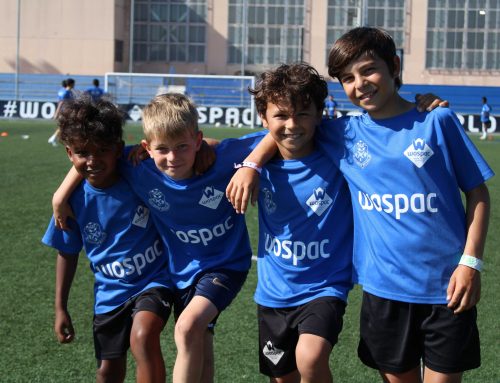Choosing the right training environment can shape the future of any aspiring footballer. For many young athletes, the decision often comes down to enrolling in a Spain boarding soccer academy or attending one of the many reputable international soccer schools around the globe. Both options offer a structured path toward professional development, but they differ in methods, cultural exposure, and overall experience.
To help players and parents make an informed choice, this article compares these two systems. With the main focus on football excellence, education, and career potential, the differences between them become clear.
Quality of Coaching and Training Methodology
One of the biggest distinctions lies in the coaching philosophy. A Spain boarding soccer academy typically follows Spain’s world-renowned football methodology. The emphasis is placed on technical development, quick decision-making, and tactical awareness. Spanish coaches prioritize ball control, fluid passing, and positional understanding.
International soccer schools, on the other hand, vary widely in training styles. Depending on their location, these programs may follow British, American, or mixed European approaches. Although some offer quality instruction, consistency can sometimes be lacking. Therefore, many families prefer Spain’s systematic and proven style, especially for younger players.
Immersive Football Culture and Environment
Spain offers something that no international soccer school can replicate—the football culture. From grassroots games to La Liga matches, football is everywhere. A Spain boarding soccer academy immerses students in a daily environment where the sport is both a passion and a lifestyle.
Moreover, students get to witness top-tier professional games and learn directly from the footballing heartbeat of Europe. While international schools may provide access to structured programs, few can match the intensity and immersion of living in a football-obsessed country like Spain.
Educational Integration and Academic Balance
Although football remains the primary focus, academic development cannot be ignored. Most Spain boarding soccer academies offer accredited education programs alongside sports training. Students attend classes during the day and train in the morning or evening.

International soccer schools also prioritize education, often with strong academic reputations. However, balancing both elements can be more challenging depending on the school’s structure. In Spain, the model is designed specifically for dual development, ensuring that students do not fall behind in studies while chasing their football dreams.
Exposure to European Scouts and Professional Clubs
A major advantage of a Spain boarding soccer academy is direct access to professional networks. Many academies maintain partnerships with Spanish clubs and host trials where scouts regularly attend. This pipeline provides students with genuine opportunities to be noticed by pro teams.
International soccer schools, although sometimes connected with local or national organizations, may lack strong relationships with European clubs. While exposure might be available, it usually requires additional travel or participation in special events. Spain’s geographic and professional positioning makes it ideal for regular, real-time scouting.
Cost, Commitment, and Long-Term Value
When comparing the two, cost becomes another consideration. A Spain boarding soccer academy often includes tuition, boarding, training, meals, and academic programs in a single package. While not cheap, this investment typically offers high returns in development and opportunity.
International soccer schools may vary greatly in price. Some charge separately for training, accommodation, and travel, which can increase overall expenses. Furthermore, the level of professional opportunities available may not always justify the cost. Therefore, many families view Spain as a more valuable long-term option.
Personal Growth and Cultural Exposure
Living abroad at a Spain boarding soccer academy teaches more than just football. Students gain independence, learn to manage their time, and adapt to new cultures. Living in Spain allows young athletes to learn a new language, explore different customs, and mature faster.
International soccer schools offer cultural diversity too, especially those in metropolitan areas. However, cultural immersion may be less intensive if students live near home or in familiar regions. The unique cultural blend in Spain helps athletes grow not just as players, but as global citizens.
Conclusion
Both Spain boarding soccer academies and international soccer schools offer valuable development paths. However, the structured training, strong academic integration, and deep football culture make Spain a standout option. For aspiring athletes who want world-class coaching and real chances at professional exposure, Spain delivers a compelling advantage.
Choosing between the two depends on your goals, budget, and readiness to embrace a life of discipline and commitment. Yet for many, the decision becomes easier when they realize what Spain truly offers—a football education that mirrors the professional world.





